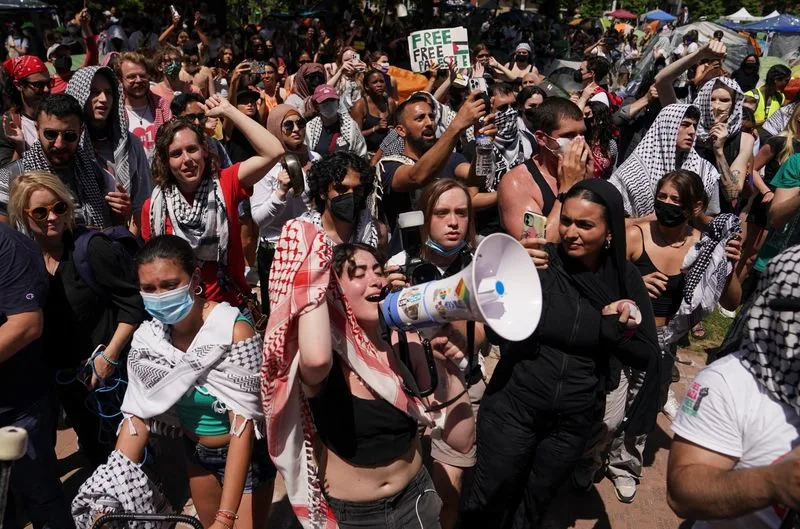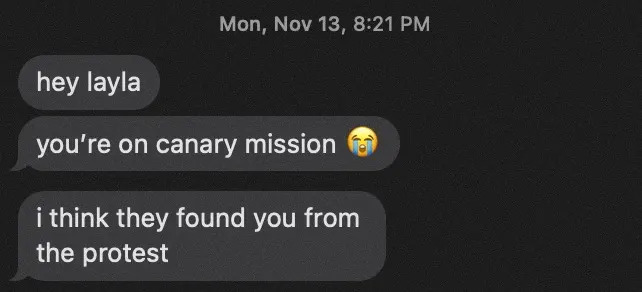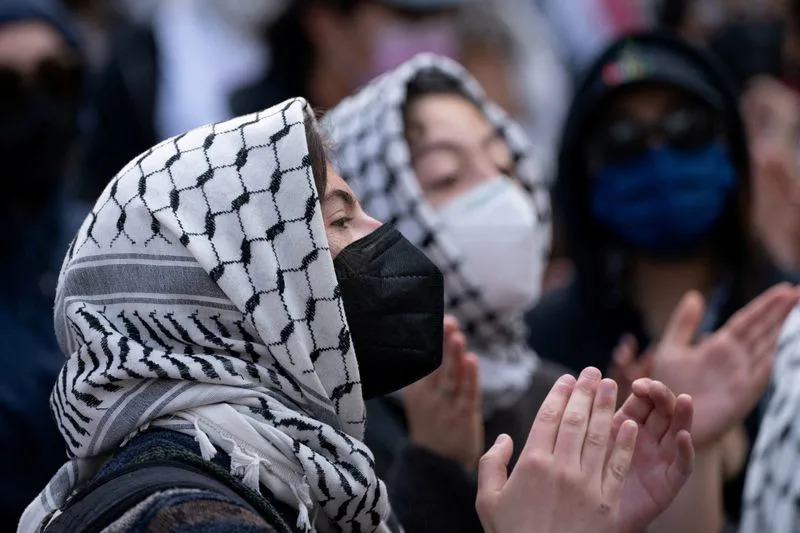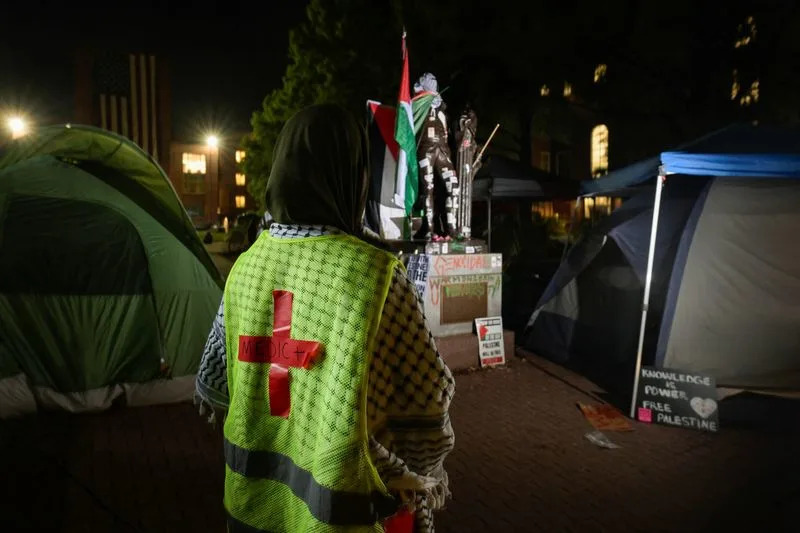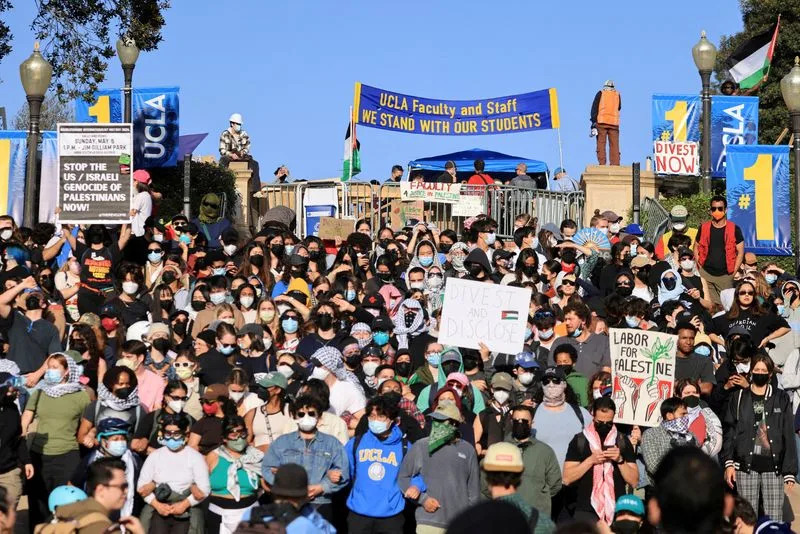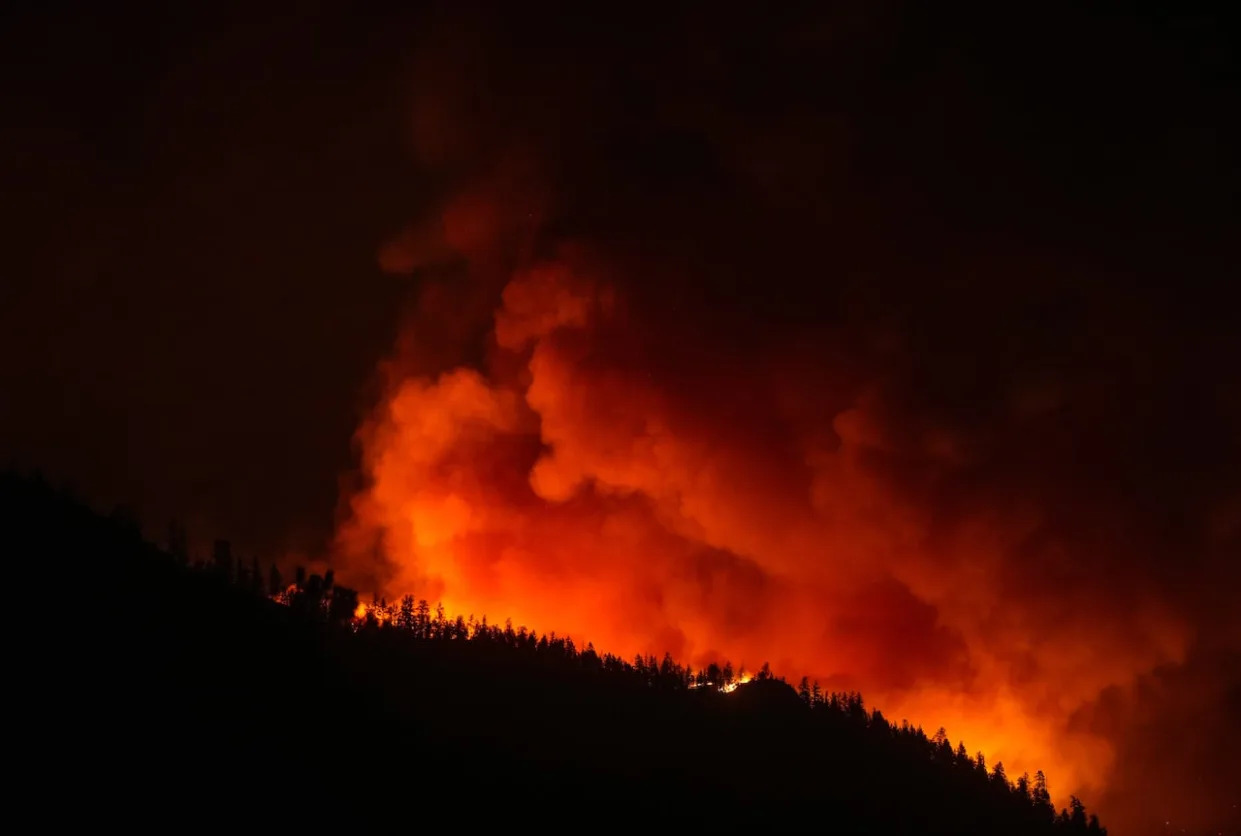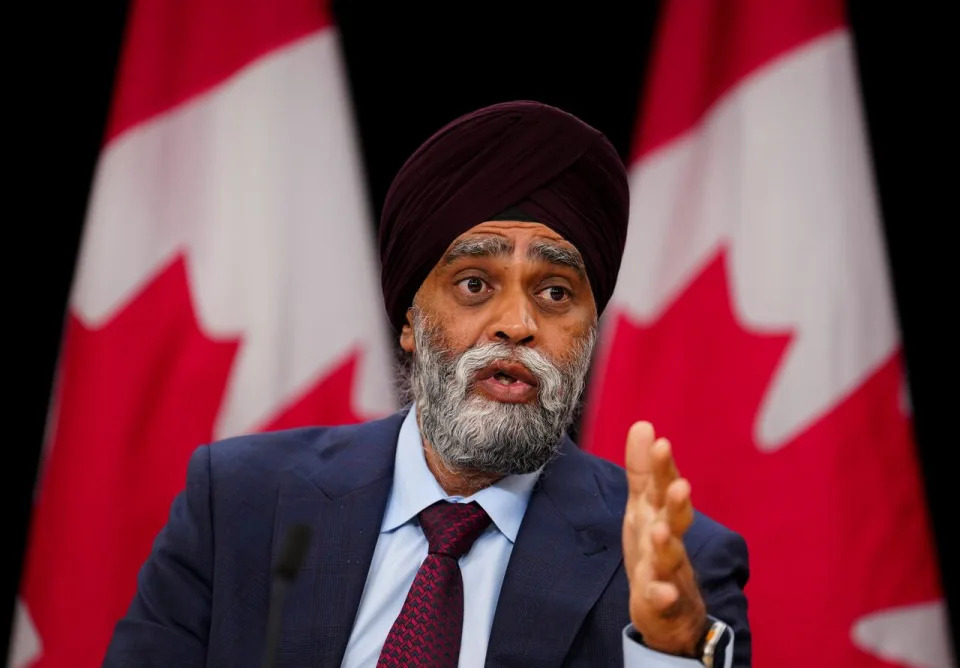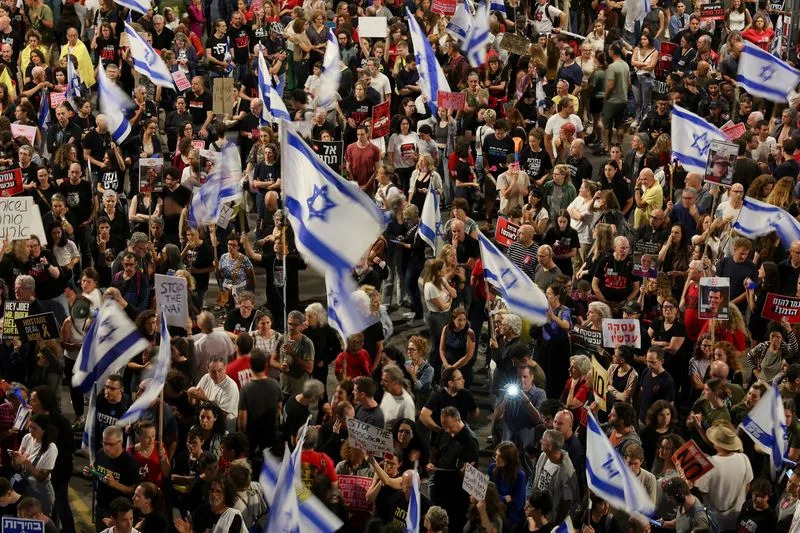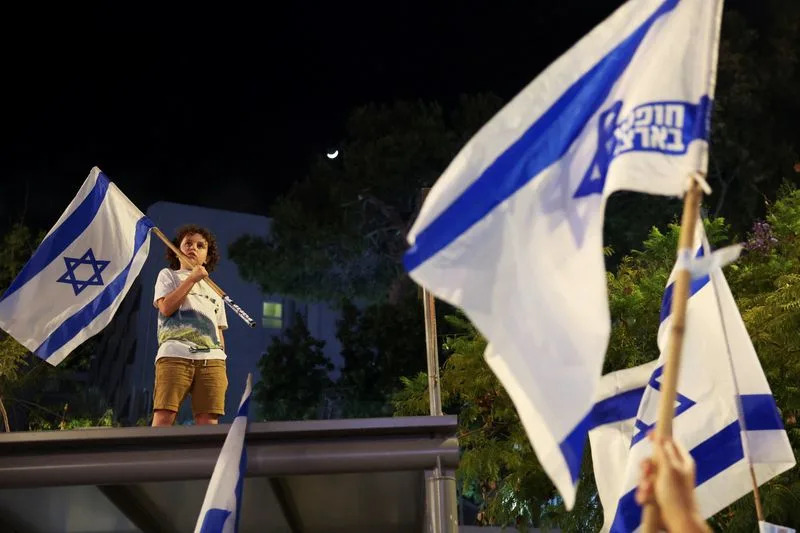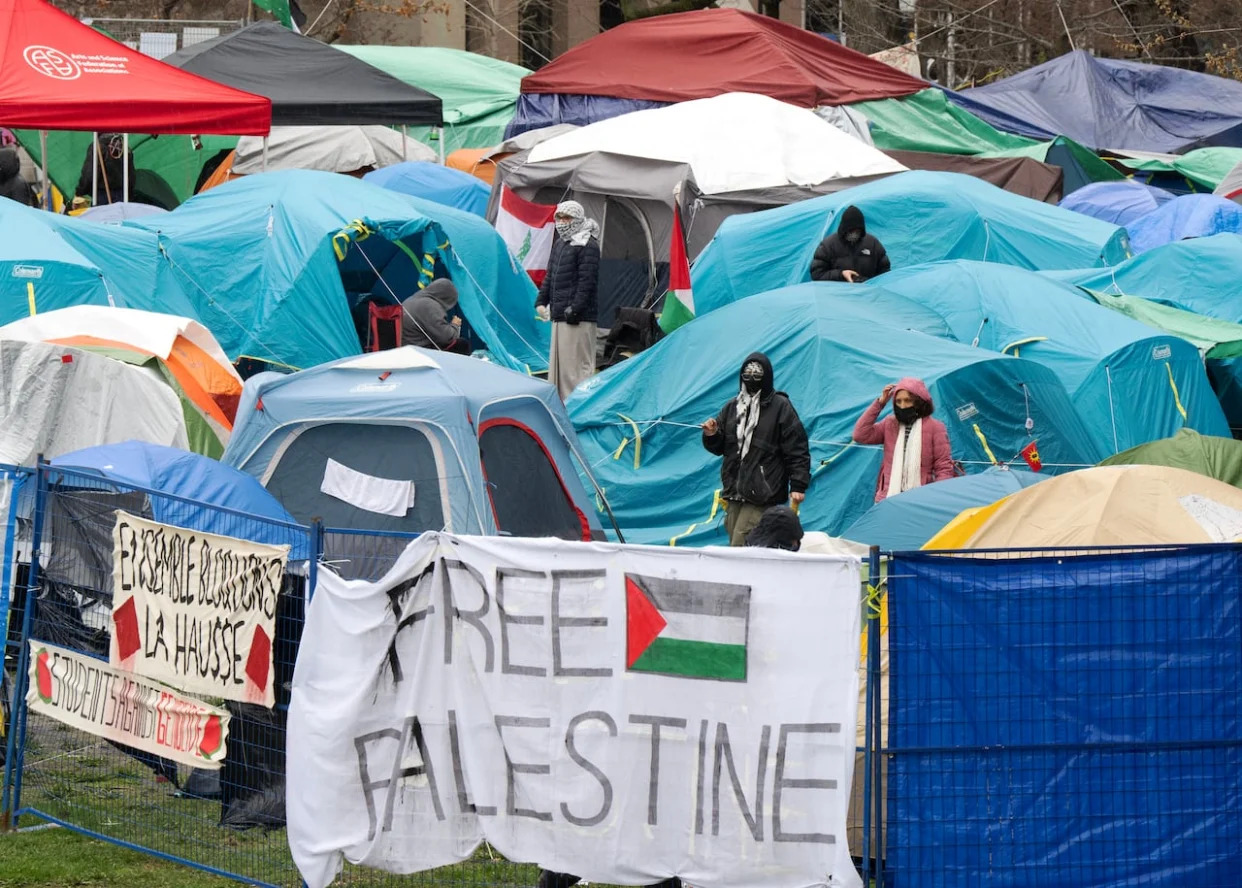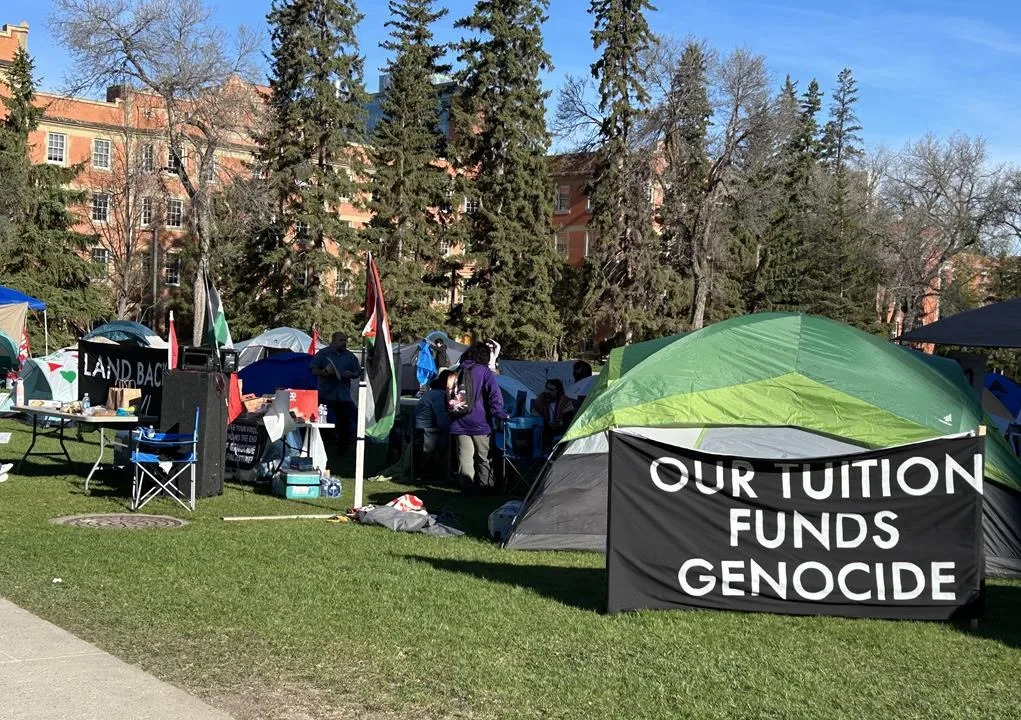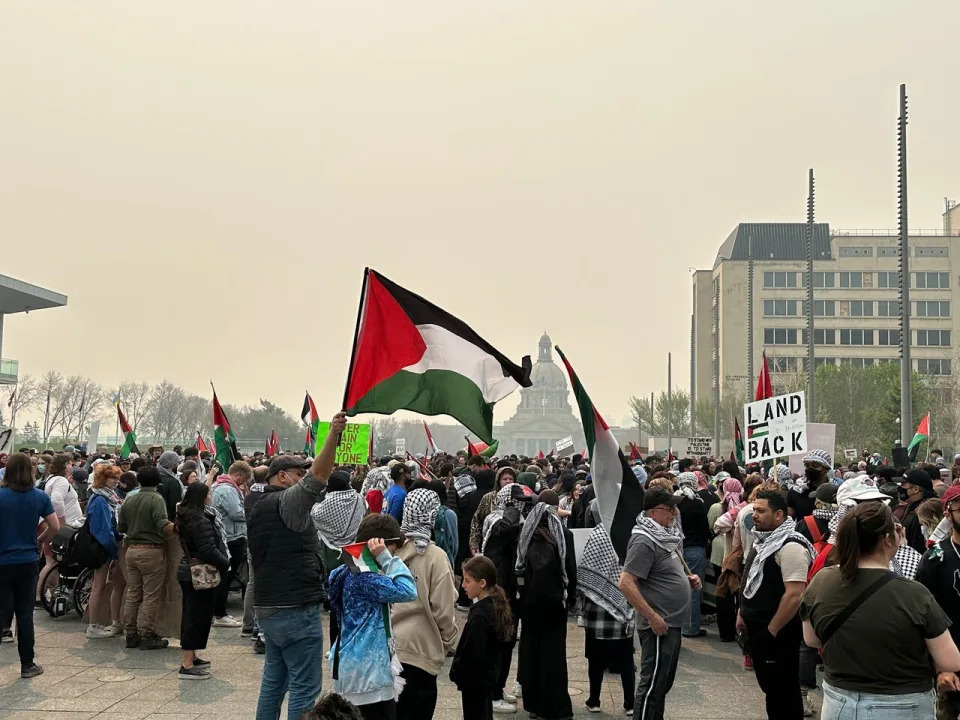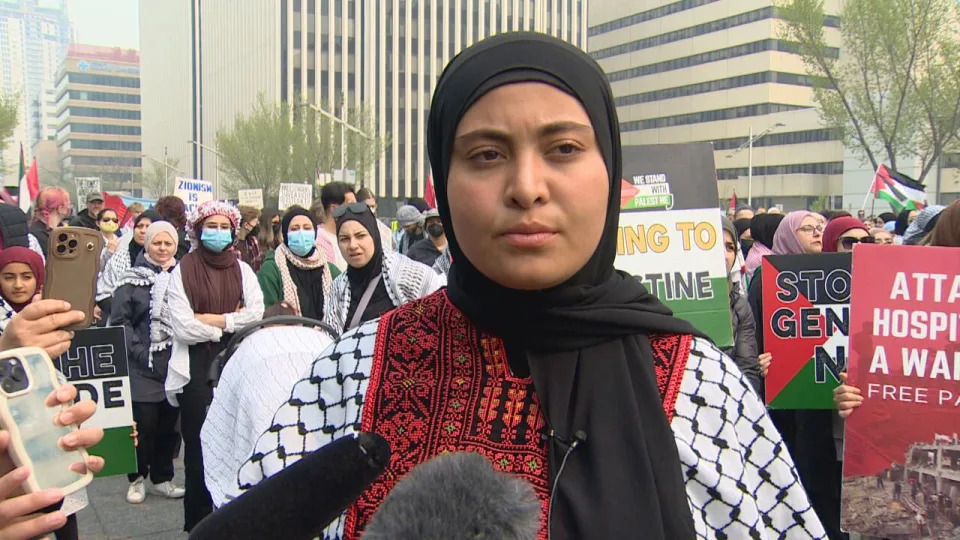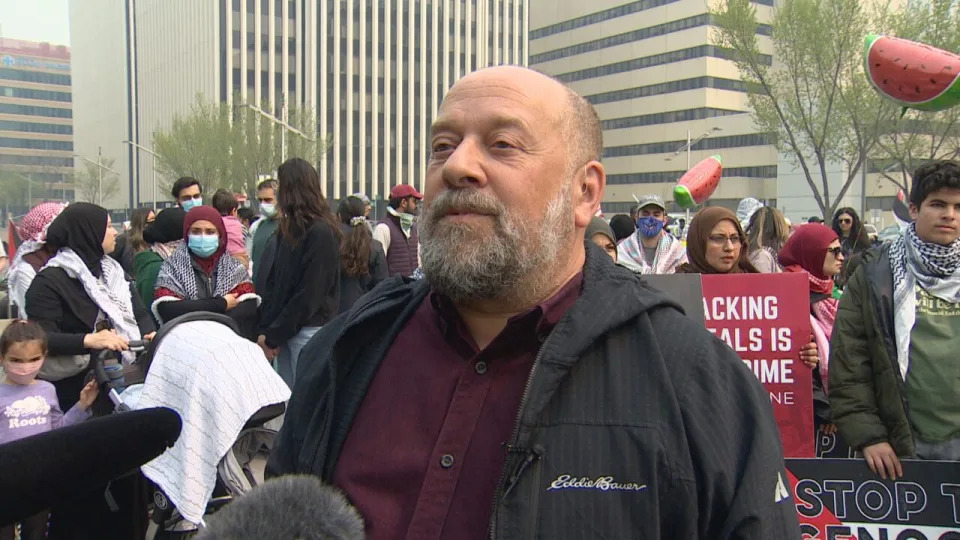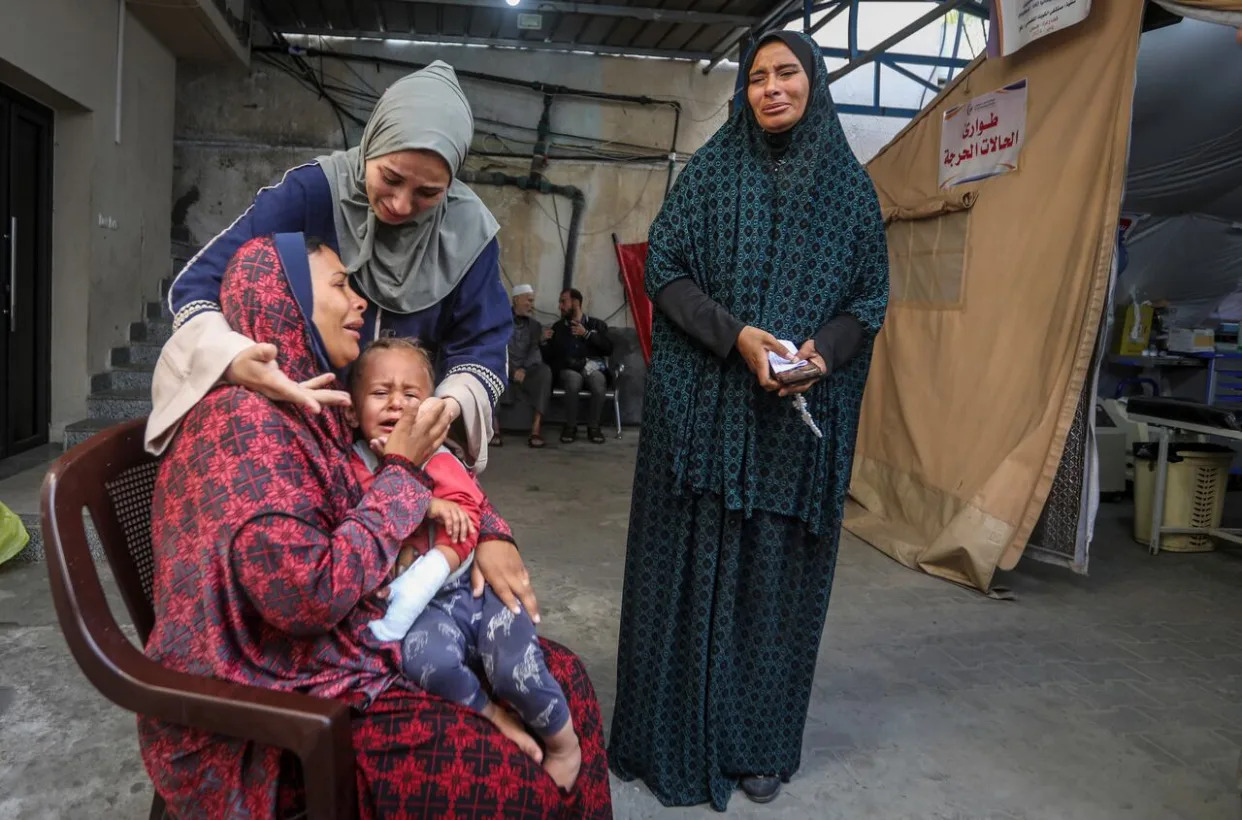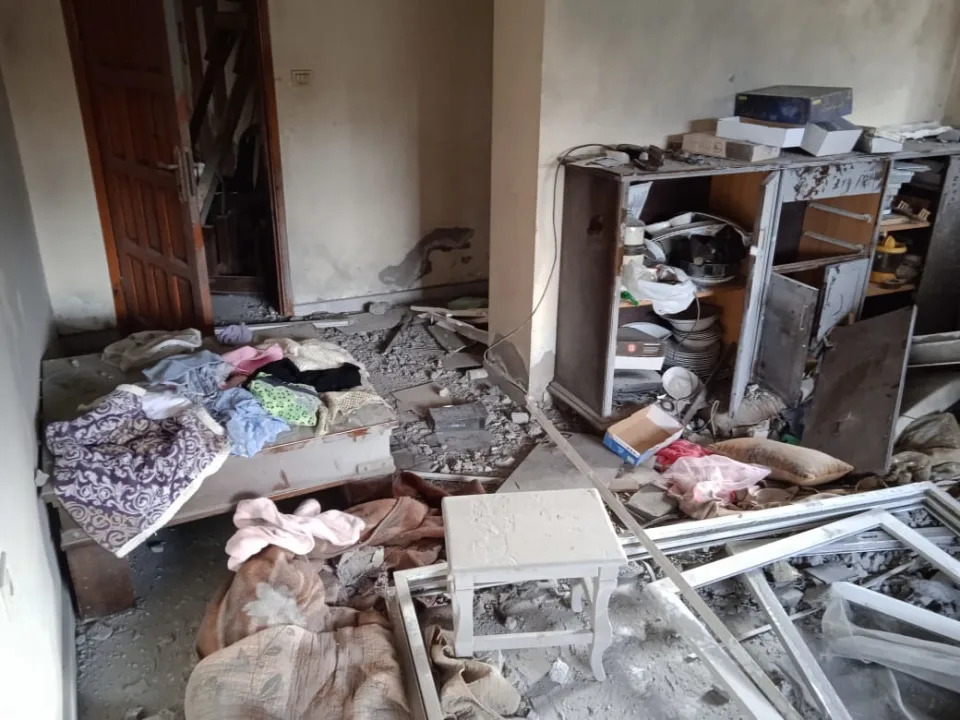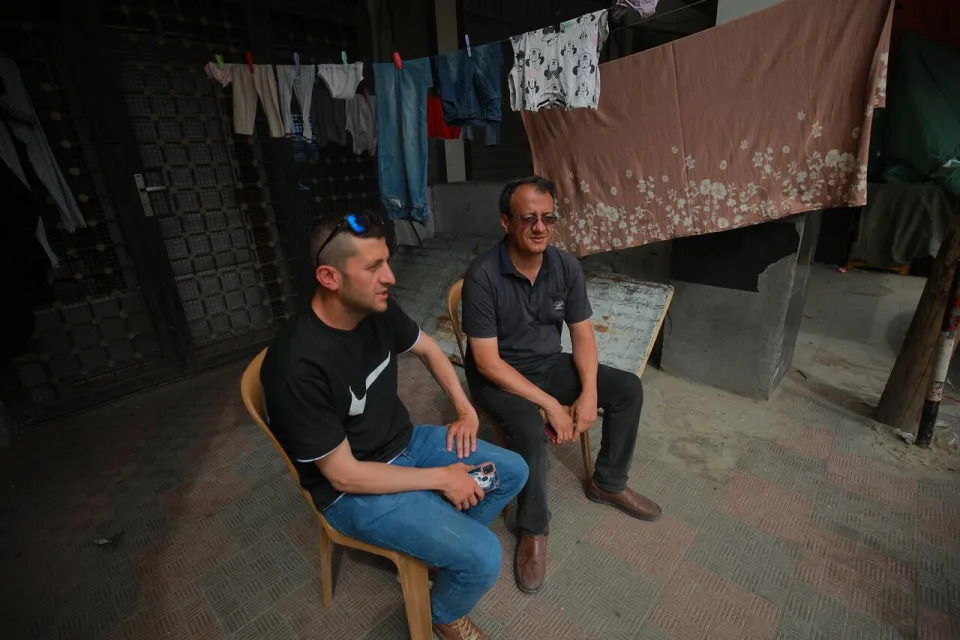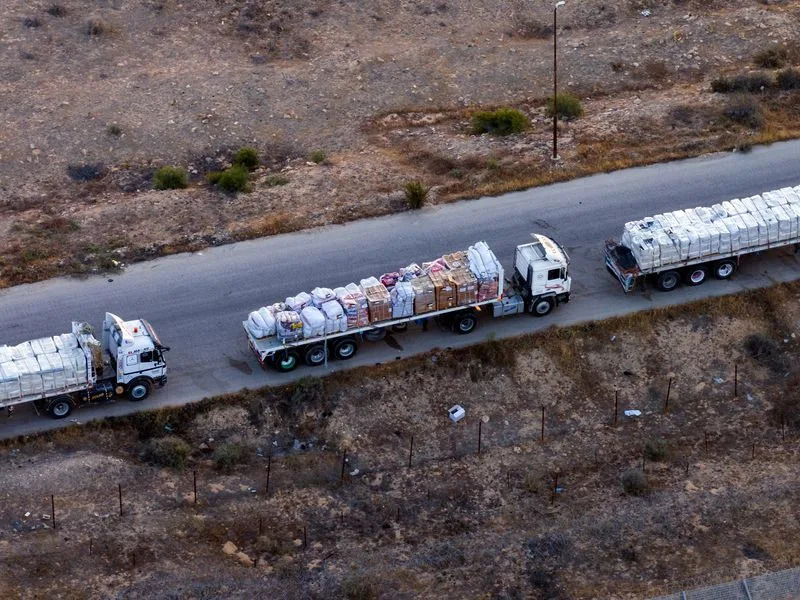ZIONISTS CREATE FEAR & TERROR
Name and shame: Pro-Israel website ramps up attacks on pro-Palestinian student protesters
Sat, May 11, 2024
Protesters gather at the University of California, Los Angeles (UCLA), in Los Angeles
By Gabriella Borter, Joseph Ax and Andrew Hay
WASHINGTON (Reuters) -Weeks after attending a pro-Palestinian demonstration, Egyptian-American student Layla Sayed received a text message from a friend drawing her attention to a website dedicated to exposing people it says promote hatred of Jews and Israel.
"I think they found you from the protest," the friend wrote.
When Sayed visited the site, called Canary Mission, she found a photo from the Oct. 16 rally at the University of Pennsylvania with red arrows pointing to her among the demonstrators. The post included her name, the two cities she lives in, details about her studies and links to her social media accounts.
Canary Mission later posted a photo of her on its X and Instagram accounts labeled "Hamas War Crimes Apologist," a reference to the Palestinian militant group's Oct. 7 attack on Israel in which around 1,200 people were killed and 253 taken hostage, according to Israeli tallies.
In response to that raid, Israel launched a military offensive in the Gaza Strip that has killed nearly 35,000 Palestinians, according to Gaza health authorities.
Comments about Sayed from social media users poured in.
"No future for that c.nt," one X user wrote. "Candidate for deportation to Gaza," wrote another.
Although Sayed has long supported Palestinian causes, she said it was the first time she had participated in a pro-Palestinian demonstration at Penn, and Canary Mission did not flag any other activities.
"My initial reaction was just absolute shock," Sayed, a 20-year-old sophomore, told Reuters. "I wasn't there to say I supported Hamas. I wasn't there to say I hated Israel. I was there to say what's happening in Palestine is wrong."
She said she did not realize at the time that a chant Canary Mission took issue with, "When people are occupied, resistance is justified," is considered by some as an expression of support for Hamas' killings. She joined in the chants, she said, to show support for demonstrations.
Responding to an inquiry submitted via its website, Canary Mission said it has been "working around the clock" to combat a "wave of antisemitism" on college campuses since Oct. 7, including by exposing people who endorse Hamas.
Canary Mission did not respond to questions about Sayed's profile or the online abuse directed against its targets, according to the comments from the site provided by a spokesperson from a Tel Aviv-based public relations firm, Gova10.
While Canary Mission relies on tips, it said it verifies what it publishes, drawing from publicly available sources. Canary Mission’s profiles include links to its targets' social media posts, public speeches and interviews with journalists.
Penn officials did not respond to questions about Sayed's case.
"Penn is focused on the well-being of all members of the community," a university spokesperson, Steve Silverman, told Reuters, adding that staff reach out to offer support when aware of concerning situations.
Canary Mission is one of the oldest and most prominent of several digital advocacy groups that have intensified campaigns to expose Israel's critics since the war broke out, often leading to harassment such as Sayed experienced. The people behind the site have kept their identities, location and funding sources hidden.
Reuters reviewed online attacks and abusive messages directed at scores of people targeted by Canary Mission since Oct. 7.
The site has accused over 250 U.S. students and academics of supporting terrorism or spreading antisemitism and hatred of Israel since the start of the latest Gaza conflict, according to the Reuters review of its posts. Some are leading members of Palestinian rights groups or were arrested for offenses such as blocking traffic and punching a Jewish student. Others, like Sayed, said they had just stepped into campus activism and were not charged with any crimes.
Reuters spoke to 17 students and one research fellow from six U.S. universities featured on Canary Mission since Oct. 7. They include other students who chanted slogans during protests, leaders of groups that backed statements saying Israel bears sole responsibility for the violence and people who argued in social media posts that armed resistance by Palestinians is justified. All but one said they had received hate messages or seen vitriolic comments posted about them online.
Messages reviewed by Reuters called for their deportation or expulsion from school or suggested they should be raped or killed.
Several pro-Palestinian groups that use similar tactics to call out Israel's defenders have emerged in recent months. They include an X account called StopZionistHate and Raven Mission, a website launched in December that emulates Canary Mission by spotlighting people it accuses of Islamophobia or helping perpetuate atrocities against Palestinians.
Raven Mission did not respond to requests for comment. StopZionistHate said it wanted to "ensure that the American public is aware of the threat posed by Zionist extremism."
ACCUSATIONS OF CYBERBULLYING
Some critics accuse sites on both sides of cyberbullying or doxxing, which they note can have a chilling effect on free expression.
Tensions have been mounting on U.S. college campuses, where Israel's war in Gaza has unleashed an outpouring of student activism. Some of the pro-Palestinian demonstrations have been met with counter-protesters accusing them of fomenting anti-Jewish hatred and intimidating Jewish students on campus. Both camps have clashed with police.
The U.S. Department of Education has opened investigations into dozens of colleges since Oct. 7, noting an "alarming nationwide rise" in reports of antisemitic, anti-Muslim and other forms of discrimination and harassment. It declined to provide details about these investigations, including whether any concern Canary Mission, Raven Mission or StopZionistHate, or incidents these groups have highlighted.
Across the U.S., pro-Palestinian student groups are advising followers to wear masks at protests, to avoid drawing unwelcome attention.
Canary Mission and its defenders argue that those who promote hatred and bigotry should be held to account. On its site, Canary Mission provides academic and employer details for the people it profiles, calling on its tens of thousands of followers to ensure "today's radicals are not tomorrow's employees."
Ten of the students interviewed by Reuters feared that appearing on the site could derail their careers. Canary Mission is often at the top of its targets' Google search results, and its social media posts can draw hundreds of comments.
For those targeted, there are few options to seek redress, lawyers and advocacy groups say. Much of what Canary Mission publishes is protected by the U.S. Constitution's First Amendment on free speech, three lawyers told Reuters.
It generally isn't illegal to publish information about someone without consent when the information is accurate and was acquired lawfully from the public domain, said Eugene Volokh, a law professor at the University of California, Los Angeles.
The legal standard for defamation is high, with the burden on claimants to prove the site made false statements about them, added Dylan Saba, an attorney at Palestine Legal, which represents pro-Palestinian activists. He could recall only a handful of cases where students succeeded in getting Canary Mission profiles changed or removed by threatening defamation suits.
The low profile of Canary Mission's principals poses an additional hurdle.
"If you're going to sue somebody, you have to know where you're serving them," Saba said.
Canary Mission says on its site that it will remove profiles of people who "recognize their earlier mistakes" and reject what it describes as "latent anti-Semitism" in groups that campaign for boycotts against Israel over its policies in the Palestinian territories. It publishes what it says are their apologies on an "ex-canary" page but does not identify the individuals.
Canary Mission told Reuters the site was established in 2015 to counter rising antisemitism on college campuses. It did not answer questions about its leadership and funding.
LINKS TO ISRAELI NONPROFIT
A 2016 tax filing by a prominent Jewish American philanthropic organization, the Helen Diller Family Foundation, revealed a financial link between Canary Mission and an Israeli non-profit called Megamot Shalom. That year, the Diller foundation gave $100,000 to the Central Fund of Israel earmarked "Canary Mission for Megamot Shalom," according to the document, which was first reported by the U.S. Jewish news outlet the Forward and reviewed by Reuters.
The Central Fund is a U.S.-based group that acts as a conduit for Americans to make tax-deductible donations to Israeli charities. Its president, Jay Marcus, told Reuters his organization only supports registered charities but would not confirm whether Megamot Shalom or Canary Mission were among them, citing the privacy of its donors and recipients.
Despite several attempts, Reuters could not reach a representative of the Diller foundation.
The organization that oversees the Diller foundation's giving, the Jewish Community Federation and Endowment Fund of San Francisco, referred Reuters to a 2018 statement confirming the donation was to support the work of Canary Mission and saying neither group would fund the site further. The statement said the federation had determined that the Central Fund did not comply with its giving guidelines but did not respond to requests to elaborate.
Canary Mission did not respond to questions about Megamot Shalom or its connection to the nonprofit.
Megamot Shalom was founded in 2016 "to preserve and ensure the national strength and image of the State of Israel" through media initiatives, according to documents obtained from Israel's corporations registry.
As of 2022, the most recent year for which records are available, it employed 11 people, including four content writers. The only donor identified in the registry documents is the Central Fund, from which it received 13.2 million shekels ($3.5 million) between 2019 and 2022, the records show.
Reuters was unable to reach Megamot Shalom's founder, Jonathan Bash, or any other listed employees. When Reuters visited the group's registered address in Beit Shemesh, a city 23 km (15 miles) southwest of Jerusalem, it found a locked one-story building with no sign of activity.
"A TARGET ON MY BACK"
Canary Mission has targeted at least 30 Penn students and academics since Oct. 7.
The university is one of several elite campuses that have been at the center of unrest over the Gaza war. Its former president, Liz Magill, resigned in December after coming under fire for her handling of accusations of antisemitism on campus.
On Friday, police dismantled an unsanctioned pro-Palestinian encampment on Penn's main lawn and arrested about 33 people following accusations of harassing and threatening behavior by protesters and the defacement of campus landmarks.
After finding her profile on Canary Mission, Sayed consulted the Council on American-Islamic Relations, an advocacy group. Ahmet Tekelioglu, executive director of CAIR's Philadelphia branch, said the group offered her help to remove information from the internet but advised that it would be hard to take legal action against a group that isn't registered in the U.S.
Despite the "blatant negative framing," Canary Mission's comments were presented as quotes or opinions, which typically cannot be the subject of a defamation claim, Tekelioglu told Reuters.
Fearful for her safety, Sayed said she removed the Palestinian keffiyeh scarf she had tied to her backpack, which she said felt like "a target on my back." She avoided walking alone on campus and put her LinkedIn profile in hibernation.
Canary Mission also profiled seven Georgetown University School of Medicine students after they were featured in a Dec. 21 article by the conservative Washington Free Beacon news site headlined, "At Georgetown Med, the Doctors of Tomorrow Aren't Hiding Their Support for Terrorism."
One of them, Yusra Rafeeqi, 22, said the websites published a screenshot of a post she said she had shared privately with her Instagram followers showing a man atop an Israeli tank waving a Palestinian flag on the day Hamas militants broke through the border fence between Gaza and Israel. The image was captioned, "No more condemning Palestinian resistance. Radical change requires radical moves."
"Fire her immediately," an X user commented on a Canary Mission post that tagged her school and a clinic where she volunteers.
Rafeeqi told Reuters she reposted the image to support resistance to what she described as Israel's "violent occupational forces" and noted she did not comment on Hamas' killing of Israelis.
A Georgetown representative referred Reuters to a statement issued by Edward Healton, the medical school's executive dean, calling the leaking of students' private information and reports of retribution against those believed responsible "unacceptable." Healton said the school condemns antisemitism and Islamophobia, and encouraged students to report potential threats.
Rafeeqi said she has had "massive anxiety" about how this might affect her ability to pursue a career in medicine and continue advocating for Palestinians.
"I no longer feel safe in this country I once called home," said Rafeeqi, whose parents immigrated from Pakistan.
Canary Mission and the Washington Free Beacon did not respond to questions about Rafeeqi's case.
($1 = 3.7291 shekels)
(Gabriella Borter reported from Washington, Joseph Ax from New York and Andrew Hay from Taos, New Mexico. Writing by Gabriella Borter. Editing by Paul Thomasch and Alexandra Zavis)
